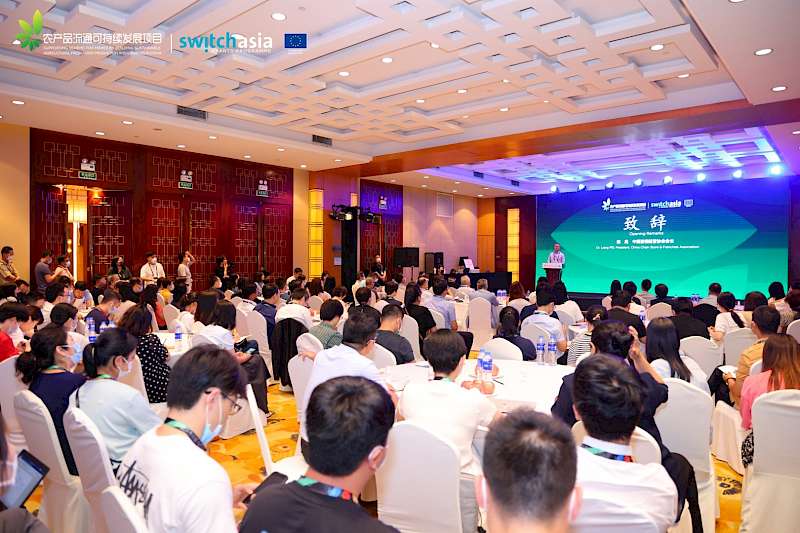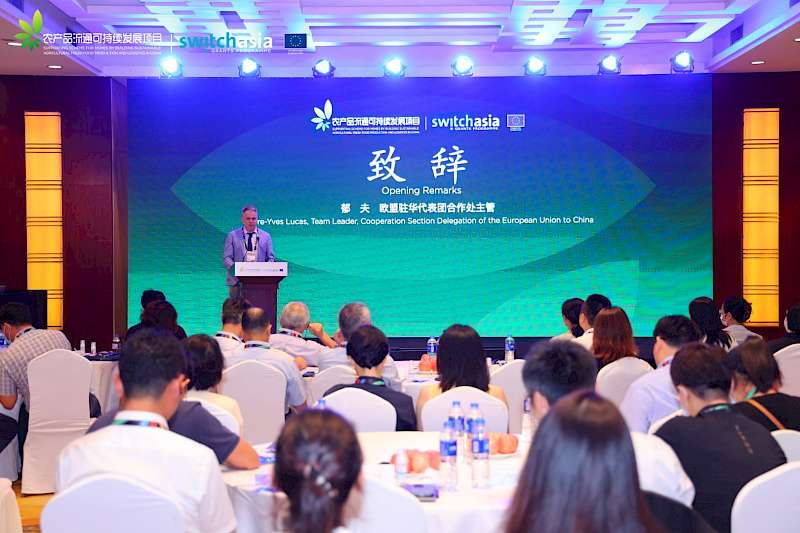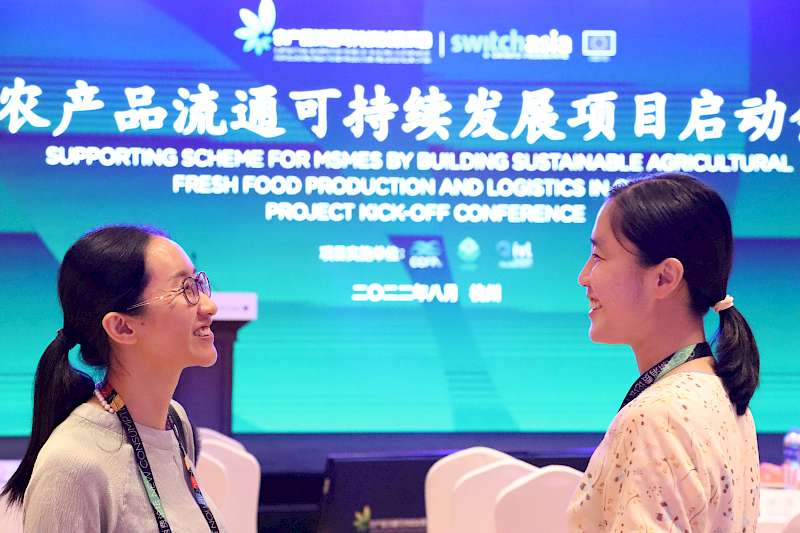
The EU funded new SWITCH-Asia project Supporting Scheme for MSMEs by Building Sustainable Agricultural Fresh Food Production and Logistics in China (SAFE) kicked off in Hangzhou on 23rd August together with its implementing partners – the China Chain Store and Franchise Association (CCFA), the Institute of Agricultural Economics and Development (IAED), and IVL Swedish Environmental Research Institute (IVL). Fruits and vegetables are of great importance to China as they constitute a large proportion of the country’s agricultural products. Main objectives of this project are to:
- Improve and promote safe production and procurement standards for fresh products, and enhance the green and sustainable production capacity of agricultural cooperatives and farmers through training;
- Promote the widespread use of standardised logistics carriers and increase the use of standardised fruit and vegetable returnable plastic crates in supermarket headquarter enterprises;
- Promote the participation of more enterprises in the "Sustainable Agricultural Distribution Project", gather industry consensus and resources, and participate in industry demonstrations and pilot exchanges;
- Relying on the advantage of the connection between the chain network and consumers, promote the sustainable development of agricultural production and distribution through market forces, and make a due contribution to the achievement of sustainable production and consumption goals.



During the event, Pei Liang, President of the China Chain Store and Franchise Association remarked:
Today we are gathered to rely on our joint efforts to explore a new path and a new model for the sustainable development of China's fresh produce supply chain, hoping to achieve a practical breakthrough at the first point and to summarise best practices at the surface to influence more enterprises and cover a wider area.
He further explained, this is not just a matter of supermarket fresh produce supply chain optimization. In addition to contributing to China’s National Development Strategy, the SAFE Project also adds an important value and significance to the country’s National Rural Revitalization Strategy and the National Poverty Alleviation Strategy, contributing overall to the achievement of sustainable development goals.
Pierre- Yves Lucas, Team Leader, Cooperation Section, Delegation of the European Union to China, further highlighted the European Commission's Farm to Fork Strategy and its efforts to promote the global transformation of sustainable food production systems.
I sincerely hope that the project could improve the efficiency and effectiveness of China's food industry value chain through mutual learning and sharing of best knowledge and practices, he said.
LIU Xianwu, Vice President of CAAS also expressed the commitment of the Chinese Academy of Agricultural Science (CAAS) to play a supporting role in science and technology in efforts to revitalize the countryside and contribute wisdom and strength to sustainable agricultural development.
Marie Fossum Strannegård, CEO of IVL Swedish Environmental Research Institute, reinforced what will be IVL’s main role in this project, namely to demonstrate the environmental benefits of increased efficiency along the food supply chain, contributing to less food loss and to less pollution and waste, including through sustainable packaging.
Among the distinguished guests who shared their expertise and experience on reducing fresh produce distribution losses, solving the fresh profit dilemma and helping the supply chain to develop more sustainably, were YUAN Feng, General Manager of the Shenzhen Pagoda Industrial (Group) Corporation Limited, “Three Zeros” Vegetable Brand Company, WANG Wei, Chairman of Anhui Fresh Legend Supermarket, and Professor CHEN Liping of the Capital University of Economics and Business.


